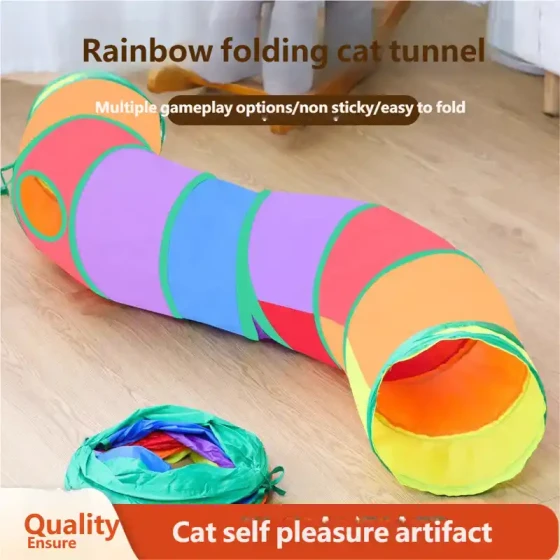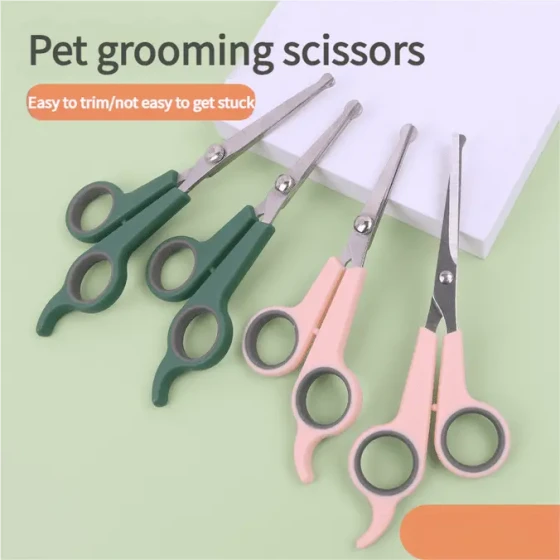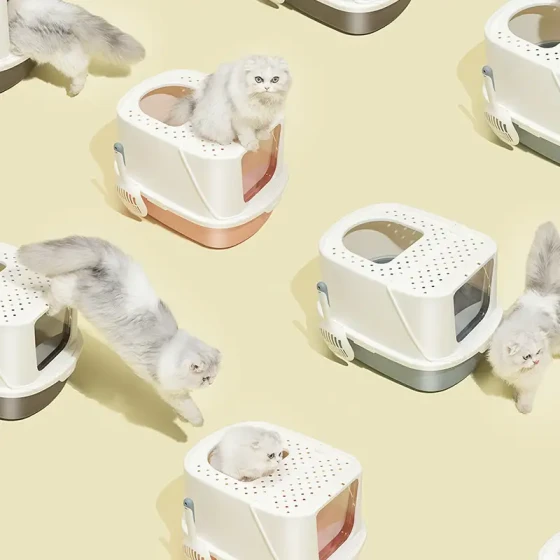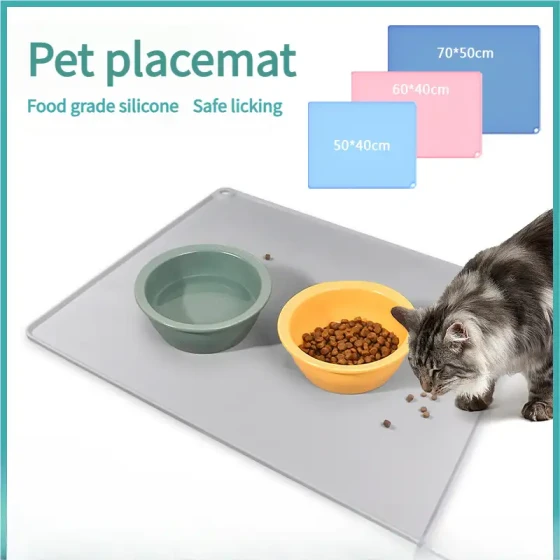Where is good for cat neutering_surgery_comparison of advantages and disadvantages between pet shops and clinics
Cat neutering surgery is an important step to ensure their health and happiness, but choosing the right neutering location often troubles many “pet owners”. Should you go to a pet hospital or choose a pet shop? There is a lot to consider. Simply put, for neutering surgeries involving anesthesia and surgical operations, a more professional pet hospital is usually the safer choice, especially for female cats whose surgery process is more complex and requires experienced doctors and complete equipment.
Neutering cats is not only to avoid various “embarrassing” behaviors during their heat, such as random urination, yowling, trying to go out to “date”, but also for the long-term health of cats. Neutering can significantly reduce the risk of reproductive system diseases in cats, such as pyometra and mammary tumors in female cats, testicular tumors and prostate issues in male cats. From a long-term perspective, neutering also positively impacts the average lifespan of cats.

Pet Hospital: Professionalism is the Hard Truth
The biggest advantage of choosing a pet hospital for cat neutering is its professionalism and safety.
Advantages:
- Professional qualifications and doctor experience: Compliant pet hospitals hold professional veterinary practice licenses and business permits. Their medical team usually has solid medical knowledge and rich clinical experience. Especially large or chain pet hospitals may have specialized surgeons who have stronger abilities in surgical risk assessment and response. According to a survey by Sina Finance, doctors’ experience and professionalism in formal pet medical institutions are closely related to surgery skills.
- Equipment and technology: Pet hospitals are usually equipped with more comprehensive medical equipment such as X-ray machines, ultrasounds, blood routine and biochemical analyzers. This helps fully evaluate the cat’s physical condition before surgery, reducing anesthesia risks. During surgery, some hospitals might adopt advanced minimally invasive techniques such as laparoscopic neutering, although the price may be higher, the wounds are smaller and recovery faster.
- Sterile environment and postoperative monitoring: The surgical rooms in formal pet hospitals are more sterile, minimizing postoperative infection risks. After surgery, hospitals usually provide a period of monitoring, observing the cat’s recovery from anesthesia, monitoring vital signs, and administering fluids and anti-inflammatory treatments if necessary, ensuring the cat safely passes through the early recovery phase.
- Ability to handle emergencies: Although neutering is generally a safe minor surgery, all surgeries carry some risk such as anesthetic accidents, bleeding, or infection. At a professional pet hospital, any emergencies can be promptly rescued and treated, maximizing the cat’s life safety.
Disadvantages:
- Relatively higher price: Compared with pet shops, pet hospitals usually charge higher fees for neutering. Costs include pre-operative checks, anesthesia fees, medicine fees, and potential hospitalization fees. Some hospitals may recommend extra tests or services, leading to costs exceeding expectations, a problem sometimes seen in the industry.
- Potential for overtreatment: Some pet hospitals may suggest unnecessary checks or more expensive medical options to increase revenue, causing pet owners to “pay more for no reason.” Choosing a hospital with a good reputation and transparent pricing is very important.
Pet Shop: Convenience and Potential Risks Coexist
Some pet shops also offer cat neutering services, usually attracting customers by price advantage.
Advantages:
- Possibly more affordable prices: Pet shop neutering service prices are usually lower than those of pet hospitals, which may be more attractive to pet owners with limited budgets.
- Convenience: If the pet shop is close to home, it may be more convenient to take the cat there for neutering.
Disadvantages:
- Questionable qualifications and experience: Not all pet shops possess the professional qualifications and experience required for neutering surgery. Some pet shops may only provide simple boarding or grooming services, lacking professional veterinarians and surgical conditions. Even if surgery is offered, doctor experience and skill levels may vary greatly.
- Inadequate equipment and environment: Pet shops typically do not have as comprehensive medical equipment or sterile operating rooms as pet hospitals, increasing surgical risk and postoperative infection possibility. Some cases show that after neutering done in non-professional or at-home locations, cats suffered from severe postoperative infections and even death.
- Lack of postoperative monitoring and emergency response: Pet shops usually cannot provide professional postoperative monitoring, and if cats show abnormalities after surgery, timely and effective treatment may not be available.
How to Make a Choice? Advice for “Pet Owners”
Overall, for cat neutering, a surgical procedure, prioritizing a formal and qualified pet hospital is a more responsible and safer approach. After all, the “fur baby’s” health comes first.
When choosing a pet hospital, consider the following aspects:
- Qualifications and reputation: Check if the hospital has relevant business licenses and veterinary practice permits. You can learn about the hospital’s reputation and reviews through online platforms, social media, or friend recommendations. Choose those with better reviews and fewer negative reports.
- Medical team: Understand the hospital veterinarians’ educational background, work experience, and expertise. Experienced doctors can better assess the cat’s condition and surgery process and handle emergencies more effectively.
- Equipment conditions: Inquire whether the hospital is equipped with necessary preoperative testing equipment (such as blood routine and biochemical devices) and surgical equipment, and whether the operating room environment meets standards.
- Price transparency: Before deciding on surgery, ask in detail about the breakdown of surgery costs, including preoperative tests, anesthesia, surgery, medication, and postoperative care, to avoid hidden charges. You can compare prices among hospitals, but do not use price as the sole criterion.
- Postoperative care: Understand the hospital’s postoperative monitoring and guidance, including wound care, wearing Elizabeth collars, medication, etc.
For male cats, neutering surgery is relatively simple with faster recovery. For female cats, the surgery requires an abdominal incision, which is more complex and tests the doctor’s skills and hospital conditions more. Therefore, more caution should be taken when choosing.
Of course, in some economically underdeveloped areas, pet medical resources are limited and choices are narrower. In such cases, try to choose the locally best-reviewed and seemingly most formal institution, and communicate fully with the doctor before surgery to understand the process and potential risks.
Overview of Neutering Surgery Process and Postoperative Care Points
Understanding the basic neutering surgery process and postoperative care helps pet owners cooperate better with doctors and facilitates smooth cat recovery.
Neutering surgery process (female cat example):
- Preoperative examination: Conduct a physical exam on the cat, including blood routine and biochemical tests, to evaluate health and determine if surgery is appropriate.
- Anesthesia: Choose appropriate anesthesia according to the cat’s condition, usually general anesthesia. During anesthesia, monitor the cat’s breathing, heartbeat, body temperature, and other vital signs.
- Surgery: Shave the surgical area and disinfect it. Female cat neutering requires a small abdominal incision to remove the ovaries and uterus with ligation, then suture the wound. Male cat neutering is simpler and usually does not require sutures. The whole surgery generally does not take too long.
- Postoperative monitoring: The cat needs time to wake up from anesthesia, during which close observation is necessary.
Postoperative care points:
- Quiet rest: After surgery, cats need a quiet, warm environment to rest, avoid vigorous exercise, and prevent wound rupture.
- Wearing an Elizabeth collar or surgical suit: Prevent the cat from licking or scratching the wound, which could cause infection. The Elizabeth collar should fit well and not affect eating or drinking.
- Wound care: Keep the wound clean and dry, use disinfectants or topical medication as prescribed. Watch for redness, swelling, discharge, or other abnormalities and contact the doctor promptly if present.
- Diet management: Follow doctor’s instructions on fasting and water restriction for a period after surgery, gradually resume feeding afterward with easily digestible food. Cats tend to gain weight after neutering, so diet structure and quantity should be adjusted.
- Timely rechecks and suture removal: Take the cat for postoperative rechecks and suture removal on schedule (if non-dissolvable sutures are used).
Frequently Asked Questions
- At what age can cats be neutered?
It is usually recommended to neuter cats before their first heat and before giving birth, generally around 5 to 6 months of age. - Does neutering surgery hurt the cat?
During surgery anesthesia is administered, so the cat does not feel pain. Postoperative discomfort may occur but can be relieved with pain medications and careful care. - How long does it take for a cat to recover after neutering?
Male cats recover quickly and can basically resume normal activities in a few days. Female cats take longer, usually the wound begins to heal in about a week, and full recovery may take longer. Sutures are usually removed 7–10 days after surgery. - Will the cat’s personality change after neutering?
Neutering can reduce hormone-induced behaviors like irritability, aggression, and marking, making the cat gentler and more home-loving, possibly strengthening the relationship with the owner.
In summary, cat neutering is a routine but cautious surgery. Choosing a professional and reliable pet hospital, conducting proper preoperative evaluation and postoperative care can ensure the cat safely and smoothly passes through this significant event in its “cat life.”



